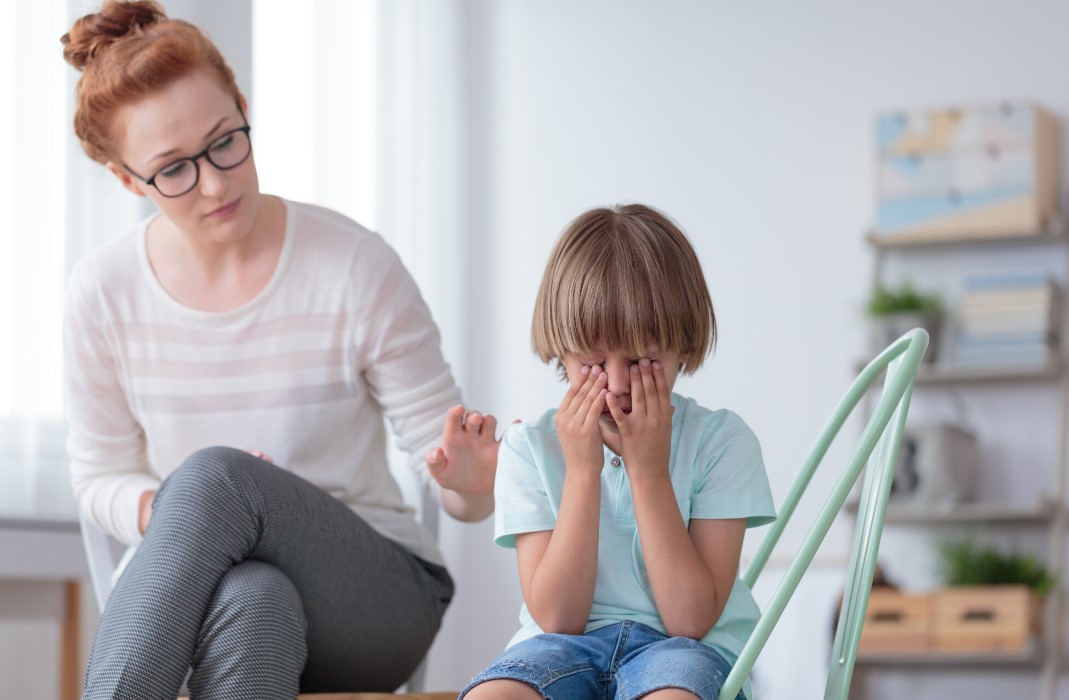Anxiety in children is not a new problem. Every year, the number of children increases. If it is not handled, their anxiety can intensify.
Is your child showing signs of anxiety as you speak? If it is so, then read on. In this guide, we’re listing down signs of anxiety in children and how to manage the situation.
1. Mood Swings
Mood swings are a common sign of anxiety in children. Many children who struggle with anxiety will experience wide shifts in their moods. This is sometimes within a short timeframe.
They may appear to be in good spirits one minute, then sullen and overwhelmed with their emotions the next. It’s essential for parents and teachers to pay close attention to any mood swings or changes in behavior that could be indicative of underlying anxiety.
It is important for parents and teachers to help children to recognize and better understand how these feelings affect their day-to-day lives. Teaching them effective coping strategies to help them manage their anxiety and to help create a more stable and positive outlook on their future.
2. Avoidance of Social Situations
Anxiety in children can present itself in many ways, including avoidance of social situations. This is a common sign of anxiety because children are often afraid of participating in social activities if they lack self-confidence. They may withdraw and become silent and avoid interaction with others. Some may even refuse to be left alone.
Avoidance of social situations may also manifest in more extreme behavior, such as skipping school or lying about where they are going. The child may experience a sudden decrease in performance in school or other activities.
If you notice any of these signs in your child, it is important that you seek professional advice as early as possible to ensure that their mental health is taken seriously and managed effectively.
3. Stomachaches and Headaches
Children who suffer from anxiety often display physical symptoms such as stomachaches and headaches. Stomachaches can range from mild to severe and may be associated with nausea and vomiting.
Headaches may be felt in a variety of locations, such as the temples, the back of the head, or more generalized all-over head pain. Additionally, stomachaches and headaches in anxious children may be recurring or chronic in nature, persisting for several weeks or months.
It is important to remember that all of these symptoms can occur in children with and without anxiety. If any of these signs are persistent or severe enough to impair daily life, it is important to seek professional help for assessment and possible anxiety treatment.
4. Sleep Disturbances
Sleep disturbances may be a sign of anxiety in children, too, such as difficulty falling asleep, insomnia, frequent night awakenings, early morning waking, and nightmares.
Anxiety can be overwhelming for children, leading to physical, emotional, and mental exhaustion. If anxiety becomes severe and chronic, the child will have difficulty sleeping, leading to tiredness and irritability during the day.
Parents should take note if their child begins having difficulty sleeping, and if this persists, consult with their pediatrician or a mental health specialist. To help a child relax before sleeping, parents can encourage the use of calming activities such as reading, yoga, or meditation.
Establishing a regular sleep schedule, allowing plenty of time for winding down in the evenings, and creating a calm, relaxed atmosphere in the bedroom can help a child prepare for sleep.
5. Difficulty Concentrating
Some signs that a child might be showing symptoms of anxiety include difficulty concentrating. This often manifests itself as a lack of focus, decreased attention span, and a general decrease in the level of energy and engagement with the task.
If the child regularly has trouble sustaining attention or focus in the classroom setting, that might be an indication of anxiety. Additionally, the child may be fidgety or restless when trying to focus on one task for an extended period of time.
If a child is exhibiting any of these symptoms, it is important to discuss the issue with a doctor or other mental health professional to rule out any other underlying problems and decide if the child needs treatment for anxiety.
6. Irritability
Anxiety in children reportedly manifests itself in many ways, but irritability is one of the most common signs. Children with anxiety may be easily frustrated, have short tempers, and be easily triggered by even minor matters.
They often display exaggerated reactions to everyday occurrences, including things that other children may find relatively minor. If a child’s behavior appears to be out of character or they seem to be having difficulty regulating their emotions, it may be a sign that they are dealing with anxiety.
7. Clinginess to Parents
Signs of anxiety in children related to clinginess to parents can be subtle and easily missed. Children might show clinginess by refusing to leave their parent’s side, being excessively needy and demanding, and even having frequent tantrums if denied access to a parent.
Parents should be aware of the signs and look out for any behavioral changes that might suggest their child is suffering from anxiety. Acknowledging and addressing the signs of anxiety can help prevent long-term issues and provide their child support, guidance, and understanding. Options like virtual therapy for kids are widely available, so don’t miss out on checking them out.
Explore These Signs of Anxiety in Children
These signs of anxiety in children can be extremely concerning and disruptive. If you are concerned about your child’s mental health, it is important to make sure you reach out for help from mental health professionals.
Working with professionals can be a great way to make sure your child is receiving the support they need. Remember, it is never too late to get help.
If you want to explore the best topics, we’ve got you covered. Check out some of our other blogs today!

